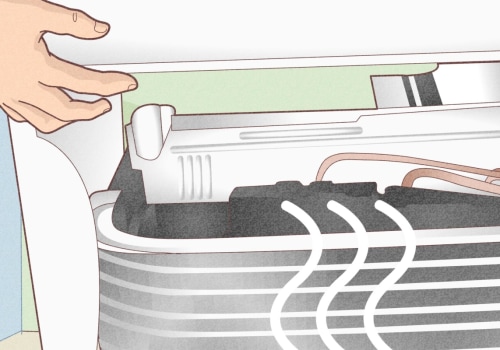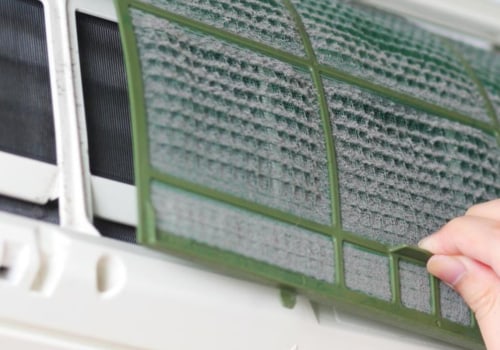Having a dirty air filter in your air conditioning system can have serious consequences. It can cause poor cold air flow, ice formation on the coils, and even system-wide failure. To prevent these issues, it's important to regularly clean or replace your air filter. A dirty filter will restrict the flow of cold air, causing it to build up inside the air conditioning unit and lower the temperature.
This can lead to icing on the air conditioning coils or evaporator, which will reduce the HVAC system's ability to remove heat from the air and eventually cause the air conditioner to fail. Signs that the AC filter needs to be replaced include warm air coming out of the back of the unit and an overheated air conditioner. A clogged filter forces the air conditioner to work harder to keep the house cool, leading to more frequent repairs and a shorter life for the unit. To reduce this load, it's important to change the AC filter regularly.
If you have a reusable filter, you don't need to buy a new one every time you maintain your air conditioner. To clean a reusable filter, remove it from the air conditioning unit safely and rinse it in a tub or sink with warm water. Don't try to dry it as this can damage its delicate surface. The purpose of an air filter is to filter out microscopic particles such as dust, pollen, pet dander, bacteria, plant spores and mold, and even smoke. If you have a reusable filter, you don't need to buy a new one every time you maintain your air conditioner. To clean a reusable filter, remove it from the air conditioning unit safely and rinse it in a tub or sink with warm water. Don't try to dry it as this can damage its delicate surface. The purpose of an air filter is to filter out microscopic particles such as dust, pollen, pet dander, bacteria, plant spores and mold, and even smoke.
If you leave your air filter clogged for too long, you may experience a system-wide failure. To keep your air conditioner running efficiently for longer and avoid costly repairs, it's important to clean or replace your AC filter regularly. Doing so will ensure that your home stays cool and comfortable all summer long.



